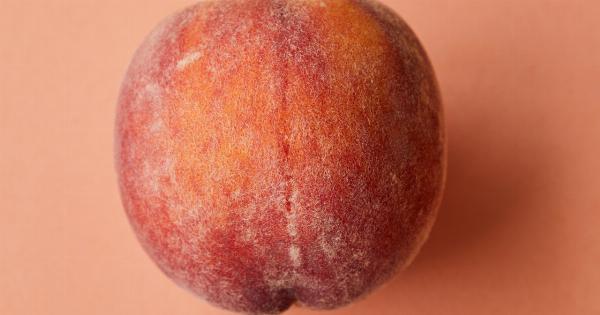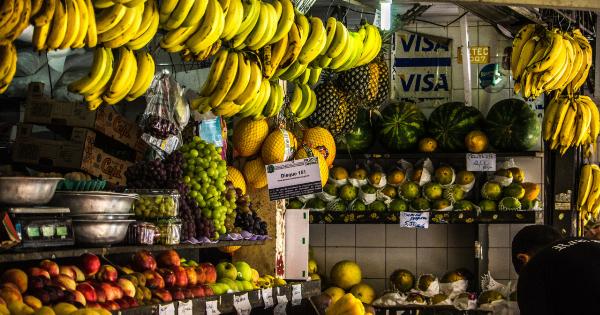Fruit and vegetables are an essential part of a balanced diet, providing us with vital nutrients, fiber, and antioxidants that are necessary for good health.
However, improper storage can significantly impact the freshness, taste, and nutritional value of produce. Knowing which fruits and vegetables belong in the fridge and which do not is crucial to extend their shelf life and prevent spoilage.
Fruits and vegetables that belong in the fridge
Not all fruits and vegetables are best stored at room temperature. Some produce items tend to ripen quickly or are susceptible to spoilage when left out. These fruits and vegetables will benefit from refrigeration:.
Citrus fruits
Citrus fruits such as lemons, limes, oranges, and grapefruits are best stored in the fridge. The cool temperature helps maintain their juiciness and prevents them from drying out.
Additionally, refrigeration can prolong the shelf life of citrus fruits, allowing them to stay fresh for longer periods.
Berries
Strawberries, blueberries, raspberries, and other delicate berries should be refrigerated. These fruits are highly perishable and can quickly spoil at room temperature.
By storing them in the fridge, you can enjoy their sweet and juicy taste for an extended time.
Grapes
Grapes are another fruit that should be kept in the refrigerator. The cool temperature helps slow down the ripening process, preserving their crispness and preventing mold growth.
Remember to store them in a ventilated bag or container to maintain their quality.
Leafy greens
Leafy greens like lettuce, spinach, kale, and Swiss chard need to be refrigerated. These vegetables have high water content and can wilt quickly if exposed to warm temperatures.
Storing them in the fridge helps retain their crisp texture and maximize their freshness.
Broccoli and cauliflower
Both broccoli and cauliflower benefit from refrigeration. The cool environment helps preserve their nutrients and prevent them from turning yellow or developing a bitter taste.
Wrap them in a plastic bag or airtight container before placing them in the fridge.
Fruits and vegetables that don’t belong in the fridge
While refrigeration helps prolong the shelf life of many produce items, some fruits and vegetables are better off stored at room temperature:.
Tomatoes
Tomatoes lose their flavor and become mealy when refrigerated. It’s best to keep them at room temperature on your kitchen counter. If they are not fully ripe, you can place them near a window to ripen faster.
Bananas
Refrigerating bananas can disrupt their natural ripening process. The cold temperature turns their skins dark and affects the texture. Keep bananas at room temperature and separate them if you want to slow down the ripening.
If you prefer them chilled, you can peel and place them in the freezer.
Avocados
Avocados should be stored at room temperature until they are ripened. Placing them in the fridge can delay the ripening process and result in unappetizing and hard avocados.
Once they reach the desired ripeness, you can move them to the refrigerator to extend their shelf life for a few more days.
Potatoes
Potatoes fare better in a cool, dark environment rather than the cold temperature of a refrigerator. Storing potatoes in the fridge can cause their starches to convert to sugars faster, resulting in a sweeter taste and an undesirable texture.
Find a cool and dry place, like a pantry or a cellar, to keep potatoes fresh longer.
Onions and garlic
Both onions and garlic should be stored in a cool, dry, and well-ventilated area. The moisture in the refrigerator can cause onions to become soft and moldy, while garlic can sprout and become rancid.
Keep them in a mesh bag or a well-ventilated container away from direct sunlight.
Conclusion
Proper storage of fruits and vegetables is essential to maintain their freshness, taste, and nutritional value. While refrigeration is beneficial for some produce, others are better off at room temperature.
Remember to store citrus fruits, berries, grapes, leafy greens, broccoli, and cauliflower in the fridge. On the other hand, tomatoes, bananas, avocados, potatoes, onions, and garlic should be kept in a cool, dry place in your kitchen. By following these guidelines, you can enjoy the best flavor and quality from your produce while minimizing waste.





























